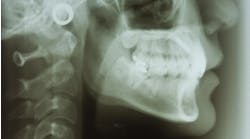Colgate sponsored “Science to Cities” tours in November and December, 2014, presenting “New Perspectives on Evidence-Based Dentistry” in five cities in three weeks. The Science to Cities tour stops were Boston, Atlanta, San Francisco, Houston, and Chicago. Two dentists and two dental hygienists were the presenters in the course – Drs. John Comisi and Angelo Mariotti, and Ann Eshenaur Spolarich, RDH, PhD, and JoAnn Gurenlian, RDH, PhD.
“New Perspectives on Evidence-Based Dentistry” discussed the periodontal disease epidemic in the U.S., and was designed to help oral health-care professionals make informed evidence-based recommendations for patient home care of natural teeth and implants. In addition, the technology behind dentifrice containing triclosan/copolymer was reviewed in detail, along with the mode of action, clinical benefits, and safety. The courses were accredited for three CE credits.
I attended the course in San Francisco. Participants learned new advances in periodontology and evidence-based management of disease, including treatment protocols, how evidence-based dentistry can be used in clinical practice to make decisions for patient care, the fundamentals of systematic reviews and how to interpret results and the role these reviews play in evidence-based dentistry and dental hygiene, new insights on implant maintenance and the role of triclosan with respect to inflammation, and last but not least, a review of the safety and efficacy of triclosan for use in Colgate Total toothpaste. As you may know, triclosan has been in the lay media lately, along with much inaccurate information.
Regarding evidence to determine the products and procedures we use and recommend to patients, there are many resources. The Cochrane Collaboration is a global independent network of health practitioners, researchers, patient advocates, and others who make the vast amounts of evidence generated through research useful for apprising decisions about health.(3) A not-for-profit organization, collaborators from over 120 countries work together to produce credible, accessible health information that is free from commercial sponsorship and other conflicts of interest. The Cochrane Oral Health Review Group (OHG) is one of 53 review groups around the world that belong to The Cochrane Collaboration.(4) OHG is focused on preparing, maintaining, and disseminating systematic reviews of randomized controlled trials in oral health.
A systematic review is a high level overview of primary research on a particular question that tries to identify, select, synthesize, and appraise all high quality research evidence relevant to that question in order to answer it. The review seeks to organize all evidence that fits pre-specified eligibility criteria with the purpose of answering a question. Systematic reviews attempt to minimize bias by using explicit, systematic methodology. The Cochrane Collaboration prepares, maintains, and promotes systematic reviews to inform health care decisions.
For more on the Cochrane Collaboration, visit the website.(5) For more on triclosan/copolymer, read another section of this newsletter.
References
1. http://www.fda.gov/Drugs/DevelopmentApprovalProcess/HowDrugsareDevelopedandApproved/ApprovalApplications/NewDrugApplicationNDA/.
2. http://www.fda.gov/drugs/resourcesforyou/consumers/ucm143534.htm.
3. The Cochrane Collaboration. http://www.cochrane.org/cochrane-reviews/about-cochrane-library.
4. Oral Health Group. http://ohg.cochrane.org/.
5. http://www.cochrane.org/.










